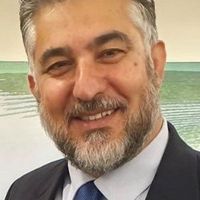Kamal Abu-Shamsieh is the Director of Interreligious Chaplaincy Program at the GTU and lecturer in Practical Theology.
Spiritual Care on the Front Lines
More than 191,000 people have died in the United States due to COVID-19. In California alone, the death toll has reached a staggering 13,900 while hospitalizations are continuing to increase.
Across the state and the nation, spiritual caregivers—also referred to as chaplains—are on the front lines of the coronavirus pandemic through their work in hospitals, prisons, nursing homes and other facilities. Every day we are helping people and their families grapple with illness and death. The demand has never been greater. Today, healthcare professionals, patients, and their families experience isolation, displacement, disorientation, and an alarming sense of vulnerability. The spiritual care response to such demands building our resilience to breathe safety, nurture love, and extend comfort in order to sustain our communities.
At the same time, spiritual caregivers are also navigating a new set of challenges as they seek to serve. How do we help grieving patients and families when we are practicing social distancing? How do we respond when our patients and their families need the human touch?
In the early days of the pandemic, the shortage of personal protective equipment (PPE) meant hospital chaplains were unable to physically be present with patients. We are often by the bedside of dying patients, and with this hurdle, our absence meant many have, unfortunately, died alone.
We have adapted in other ways, too. We are using techniques such as online talks with families and virtual visits, though this has reduced the intimacy of our presence, somewhat.
Even beyond the pandemic, however, one recurring theme that continues to challenge chaplains is the need to increase competency to care for culturally and religiously diverse communities, especially immigrant communities and communities of color. Today, a sizable number of chaplains are trained only to serve in the Christian tradition, and are predominantly Caucasian.
Meanwhile, we are seeing an increasing number of patients of many different religious backgrounds—in keeping with a nationwide trend. According to a national survey by the Pew Research Center for Religion and Public Life, the demographics of religion are changing. A decreasing number of Americans describe themselves as Christians while an increasing number describe themselves as unaffiliated or members of non-Christian religions.
The need for trained chaplains who can address this growing diversity is more urgent than ever. To help meet this need, especially during this time of crisis, the Graduate Theological Union (GTU) is launching an innovative new Interreligious Chaplaincy Program, which this fall will welcome its first cohort of students.
In the meantime, during these unprecedented challenges, spiritual care givers will be there every step of the way to console those who are suffering and give them hope.
Dr. Kamal Abu-Shamsieh, teaches chaplains worldwide on the spirituality of end of life through his non-profit Ziyara Spiritual Care, and is the Director of GTU’s new Interreligious Chaplaincy Program.


